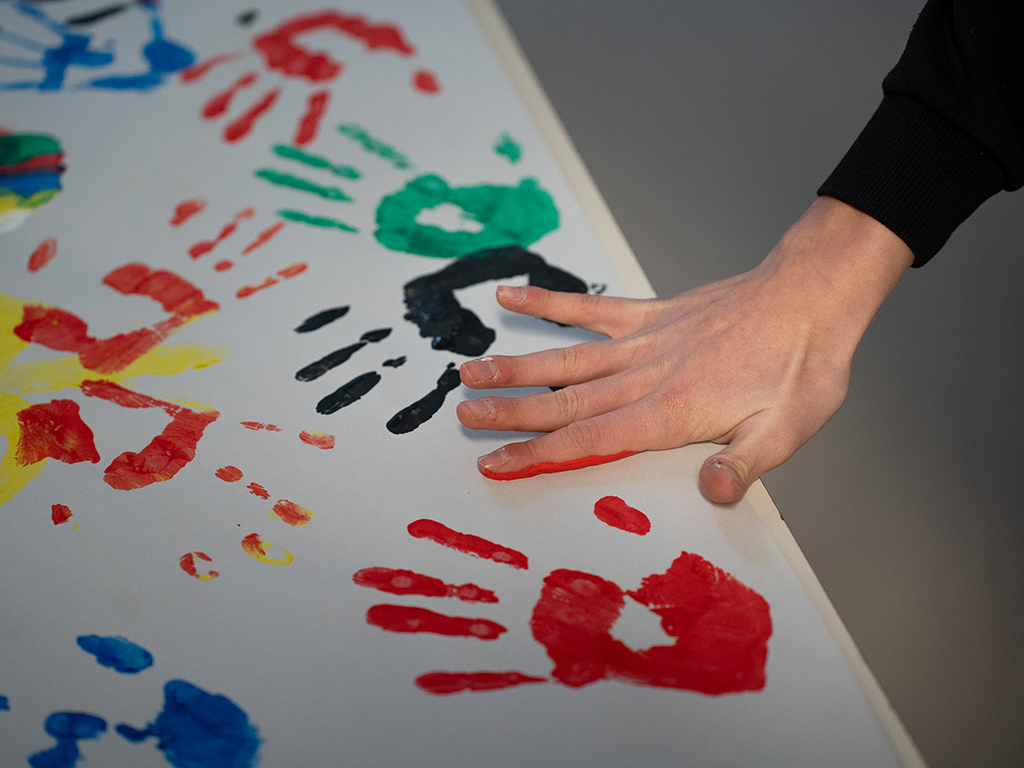Let us solve mental health challenges together! Workshops at the Secondary School of Nursing in Novo mesto

On Wednesday, January 31, 2024, two workshops aimed at empowering young people in mental health were held at the Secondary School of Nursing in Novo mesto. In the first workshop, the students formed self-help groups. The psychologist who led this workshop described the activities in this workshop as follows: “The students wrote down some real-life problems they face, e.g. that they have problems with learning, that their friend cuts herself, etc. First, we will talk about their emotions in these kinds of situations and then they will be divided into small groups—where they will discuss about what they could do and how they could help this person. Then they will choose the best solution together.” When students proactively recognise and address their mental health issues, it leads to several benefits, most notably empowerment, as students learn that they are in control of their well-being and can take steps to improve their mental health. It may lead also to early intervention, as recognising early signs of mental health issues allows for quicker and more effective intervention. The students were very satisfied with the workshop as they could solve daily problems they or their classmates faced. One student said, “I think there should be more projects like this so that we can talk to our classmates several times about our problems and look for solutions.”
In the second workshop called “Meditation Room”, the students, led by Professor Barbara, tried out meditation, which can offer several benefits to young people struggling with mental health issues, as it is a non-pharmacological way to manage symptoms and improve overall well-being. As meditation is widely recognised for its ability to reduce stress, it can help students reduce the production of stress hormones such as cortisol and promote relaxation. Regular meditation practice can help them reduce anxiety symptoms. It teaches young people to calm their minds, focus on the present, and reduce the tendency to ruminate on anxious thoughts, which is common in anxiety disorders. Meditation also promotes a positive outlook on life, boosts self-esteem, and can increase serotonin levels, a neurotransmitter associated with well-being. Through meditation, young people can learn to control their emotions better, reduce impulsivity, and improve their emotional stability.
The students also prepared stands in the main hall of the school, where they could write their fears and problems on paper and put them in a box. They could mark their current mood with colours and draw something they liked. This activity encouraged students to express their emotions and fears by writing them down, promoting emotional awareness and the normalisation of vulnerability. Using colours to represent moods and drawing personal interests provided a creative and therapeutic outlet and helped relieve stress. It fostered a supportive community, showing students that they are not alone and the importance of seeking help. It also encouraged a focus on the positives, contributing to their mental wellbeing.
Therefore, these high school activities have proven to be of high quality and useful, which the students also want to do in the future.
Karmen Erjavec in Sabina Krsnik, University of Novo mesto
